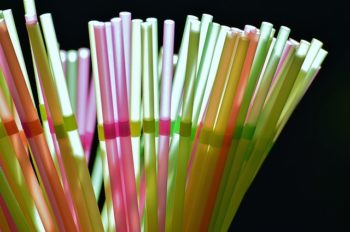 ALL STRAWS ARE NOT CREATED EQUAL
ALL STRAWS ARE NOT CREATED EQUAL
Welcome everyone to the first FACTUAL FRIDAY of August. As always, the summer is passing quickly and in case you haven’t noticed, a few old summer traditions also are becoming things of the past. Including, the familiar flexible plastic straw that has graced your favorite hot weather drink for the last sixty years from our cool California Meyer lemonades to our lovely Long Island Ice Teas.
Yep, the plastic straw is being banned by several companies in several countries around the world. And, with good reason.
You see, plastic literally is choking our planet. There is an enormous pile of trash in the Pacific Ocean that experts have dubbed the “Great Pacific Garbage Patch.” Ninety percent of all the trash floating on the ocean’s surface is plastic. One million sea birds and 100,000 marine mammals are killed each year by plastic in our oceans. And, enough plastic is thrown away each year to circle the earth four times.
And, there’s no doubt that plastic straws are a part of this momentous problem. But, how much of the problem are they?
Reports suggest that plastic straws make up about 7 percent of the plastic waste in the United States. By comparison, it’s been found that plastic bottle caps alone account for nearly 17 percent. And, 26 to 41 percent of this annual waste is attributed to plastic water bottles.
Moreover, the often-stated figure that Americans use over 500 million plastic straws every day is a number that was derived from phone calls made by a 9-year-old boy in 2011. In spite of its frequent repetition, it might be time to reassess the accuracy of this figure.
But, before you clobber me over the head, I am a huge proponent and supporter of environmental issues, especially those dealing with plastic waste. And, for the record, I have blogged on this issue several times over the last few years.
I recognize that banning plastic straws and replacing them with paper is a step in the right direction – even if this attempt is simply a swipe at the low hanging fruit. They are an easy item to eliminate. We have to start somewhere and this is a pretty simple place to begin. At least for most of us.
I have many friends, however, for whom this new “cause du jour” is a frightening prospect. It’s one thing to use a straw to avoid a less-than-clean glass, or to protect our tooth enamel from sugar and acidic drinks, or to ingest cold or hot beverages without harming sensitive teeth. In these cases, any type of straw will work. Environmentally friendly and biodegradable paper will do the job just as well as plastic.
Yet, for the wheelchair bound, stroke victims, quadriplegics, or those with specific oral cancers, Parkinson’s Disease, Duchenne Muscular Dystrophy, Cerebral Palsy, Multiple Sclerosis or Amyotrophic Lateral Sclerosis – it’s a different story. These individuals don’t use plastic straws to prevent their lipstick from smudging. They don’t use plastic straws because they don’t care about sea turtles or dolphins. They use plastic straws because plastic straws can make the difference between life and death. Period.
Yes, there are many alternatives to flexible plastic straws. They come in paper, biodegradable plastic, and reusable versions made from silicone, metal, or glass. But, the paper and biodegradable options are notorious for falling apart too quickly. They also are easy to bite through for one with limited jaw control or facial spasms.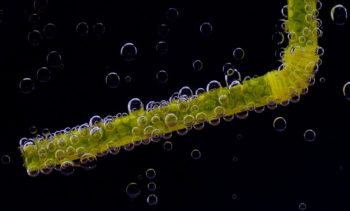
Silicone straws lack the flexibility that is so important for those with limited mobility.
Metal straws also are inflexible and can become very hot or very cold depending on the liquid being consumed.
Glass straws can break and lodge in one’s throat with one unanticipated and uncontrolled snap of the jaw.
In addition to the issues of strength, flexibility and safety all reusable straws must be kept sanitized, clean and hygienic, which is an additional problematic and ongoing concern for individuals with disabilities.
For the disabled, flexible plastic straws are not a convenience or a luxury – they’re a necessity. And, if you ask what disabled individuals did before the advent of the plastic straw, the answer according to Shaun Bickley, the co-chair of the Seattle Commission for People with Disabilities is, “they aspirated liquid into their lungs, developed pneumonia and died.”
Having so stated the problem, however, I regret I’m unable to offer a solution. Nor does it appear that a solution is forthcoming from anyone else.
The new laws banning plastic straws are all encompassing and leave no wiggle room for the needs of individuals with disabilities, which is why I disagree with most zero-tolerance policies. They simply fail to consider the differences, variances and changing circumstances of a diverse and constantly evolving population.
Perhaps an exception will be carved into the laws that will allow for the manufacturing of a limited amount of plastic straws for the disabled. Although, most companies typically are not interested in producing items for which the demand is limited and the profit margin is small.
Perhaps the flexible plastic straw will become a specialty medical item manufactured only for the disabled. But, such items often require a prescription for use and usually come with a bigger price tag, both of which pose additional burdens for the disabled.
Perhaps someone will invent a new biodegradable straw that retains all the flexibility, strength and resilience of its plastic predecessor without sacrificing any of its safety or convenience.
Perhaps. But, none of these things will happen overnight.
In the meantime, I will hang onto my flexible plastic straws. I will make sure I have some on hand for my disabled friends. I will continue to put them in the dishwasher after every use, sterilizing them and taking them out to be used again and again by those who need them.
Eventually, when they fall apart, I will add them to my recycle bin with all the other glass, paper and very limited plastic items I still use, and dispose of it all properly in accordance with current environmental regulations.
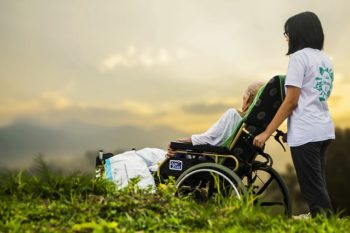 I love and respect the environment. I love and respect my disabled friends. One day, I hope for a mutually acceptable solution to this situation in which the safety, comfort and health of one will not be sacrificed for the other.
I love and respect the environment. I love and respect my disabled friends. One day, I hope for a mutually acceptable solution to this situation in which the safety, comfort and health of one will not be sacrificed for the other.
Thanks again everyone for joining me. Until next time, stay in GOOD HEALTH and . . .
TAKE THE COURSE AND TAKE CHARGE!

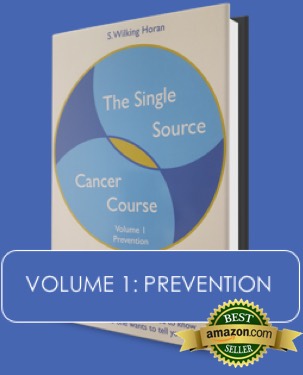
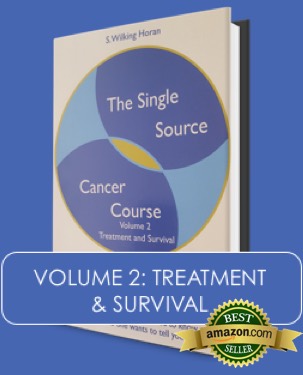
Leave a Comment